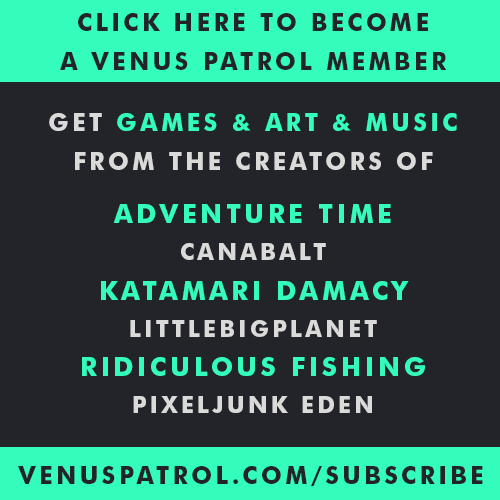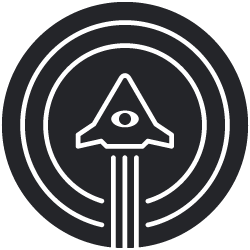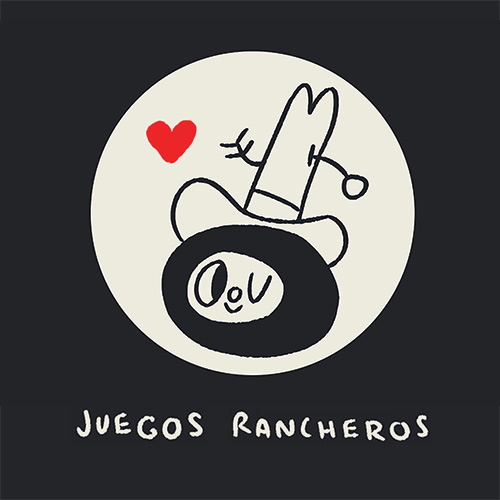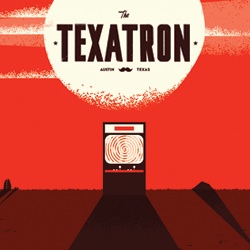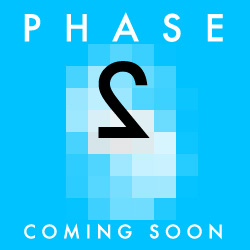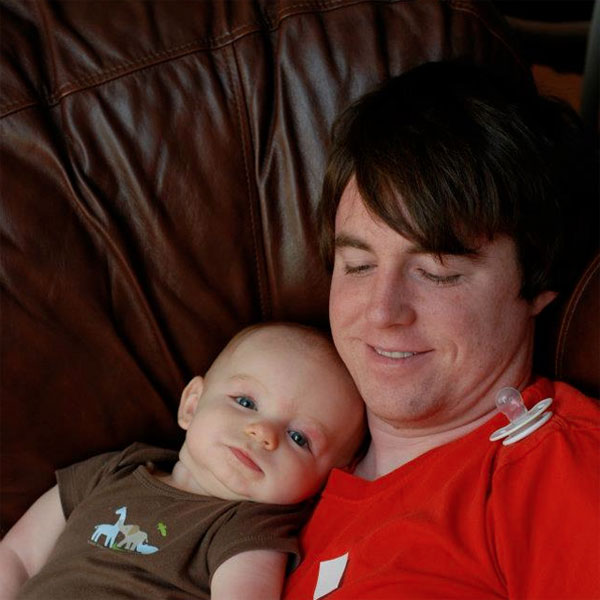
Hello, Venus Patrol supporters!
First of all, thank you so much for helping to bring Venus Patrol to life. Brandon’s old site was rising to prominence right about the same time I was finding my voice as a game designer, and I’ve always wondered what it would have been like to make the things I was making (especially FATHOM) without Brandon there to talk about it with his readership. Thankfully, that nightmarish scenario is a world that never was… until that site closed its doors, of course. So it is a great relief to me personally that you were willing and able to help bring Venus Patrol to life. So: thanks, supporters. (Thupporters.)
The last two years have been kind of weird and rough for me, creatively. Canabalt was such a big thing, and represented so many of my personal interests and aspirations, and resonated with so many people, and came to life with so little effort, that I actually, if briefly, felt like “ok, cool – that’s videogames all figured out. That wasn’t so hard!” That was a thing I actually thought. So quite naturally I set out to replicate Canabalt’s success. I loved the sense of power or influence or satisfaction or whatever it is that you get from touching millions of people’s lives with your art. I wanted more of that.
Thus began close to two years of Flash game ports, failed prototypes, misunderstandings, an identity crisis or two, and a wide swath of ultimately positive distractions, including the birth of my son (!!!). Through all of that, much of which I regret (except the ‘being a dad’ part), I retained my love of minimalism in games, of “iceberg theory”, of inviting people to use their imaginations when they play. It was during this period that I played the Lunar Lander arcade machine at the Exploratorium during a trip to San Francisco in the fall of 2010. That’s where Capsule comes from.
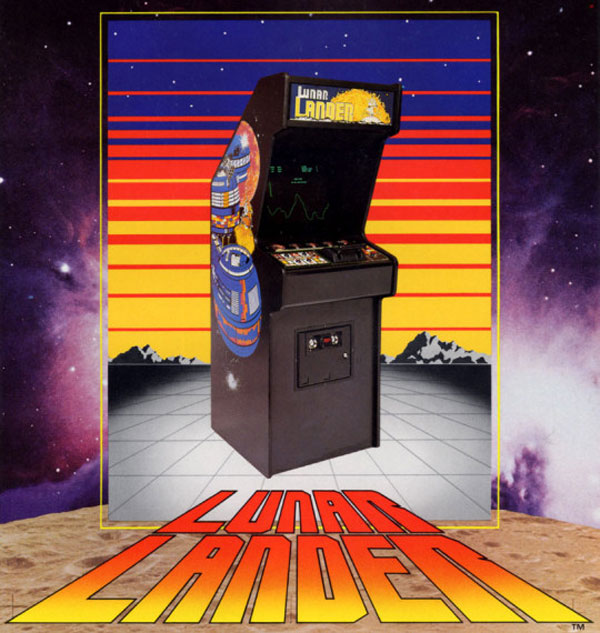
With the approaching spectre of dad-hood, I was working on improving the way I prioritized projects and what I was choosing to work on. I did not have a philosophy of art and craft (yet) but I had at least mostly escaped from under Canabalt’s shadow. My approach to prototyping had shifted ever so slightly from attempting to prove out potentially lucrative minimalist puzzles to attempting to prove out engaging minimalist experiences. And so when I played Lunar Lander, for the first time in maybe a decade or more, a little seed was planted.
A few things stuck with me about Lunar Lander. First and foremost was the strange and perfect relationship between the bulky, wonderful analog controls and the little tiny ship on the screen. Lunar Lander’s arcade incarnation only has 3 controls – the main throttle, and left and right thrusters. The thrusters are little binary push-buttons that the player operates with their left hand, while the throttle is this fantastic and enormous analog thing like you would see in an airplane or, of course, a space ship. Much of the gameplay involves the meticulous manipulation of that oversized analog input.
Lunar Lander also has a fantastic sense of desperation, that at least for me comes from two specific things – the dwindling fuel supply of the lander, and the relative scale of the huge lunar landscape, especially compared to the puny lander. The difference between the size of the landscape and the lander is so great that the game actually runs at three different zoom levels! All of these things combine to create a kind of instant sense of immersion and seriousness for me during that first play over a year ago.
And so I began to fantasize about a simple game that could capture some of those same feelings but also do some new things, other things that I was personally interested as a designer, like infinite/adaptable procedural game worlds, detailed audio environments, and diegetic interfaces. Built either as a gallery piece, with a custom controller, or more realistically for a touch-screen device, the game would be a survival horror version of Nintendo’s touch-screen-controlled Steel Diver demo, with a bunch of fake throttle controls and buttons and things. The game simulation would play out on a little radar screen embedded in that control panel.

As a game designer this was an exciting prospect but there was a catch. Even if the touch controls felt cool, if the simulated world displayed through the radar screen was not interesting enough, this would not be a valid project, not worth spending time on, for me personally. I didn’t have any clear ideas about what that radar simulation would be, but it seemed ripe for prototyping in Flash. That way I could test out new ideas and see what kinds of systemic tension could be explored. I started this prototype early in the summer of 2011.
And like most of my prototypes, I gave up on it after a while. It wasn’t that it was uninteresting, but building and testing new things, and figuring out what I was even making was psychologically exhausting. Being a dad and helping run Semi Secret were my main priorities anyways, and this project was, to put it mildly, a niche interest. There’s not a huge market out there for claustrophobic, abstract, zero-th person survival horror games.
And so time passed. I still daydreamed about some imaginary future where this game was a real iPad game and oh wouldn’t that be neat? But it was too risky to do as a full commercial production, and so we focused on other things. Then a couple of things happened: first, I began to develop a philosophy of art and craft. I will not belabor you with the details, but suffice it to say it is less a manifesto and more a way of framing and understanding my own work internally. But this philosophy helped me understand where the as-yet-unnamed Capsule prototype fit into my life creatively.
The second thing that happened is Brandon started putting together the Venus Patrol Kickstarter, giving me an excuse and an audience to power my strange prototype. So I pledged to Brandon that I would create an exclusive game for his supporters. I still didn’t know what Capsule was going to be, but I knew then that at least it was going to be.
When the Kickstarter was fully funded after like a day, it was time to start figuring out what Capsule was going to be. Things fell into place with relatively little planning and relatively little effort on my part. The only bump in the road was the audio. And by bump I mean gaping chasm I could never cross alone.
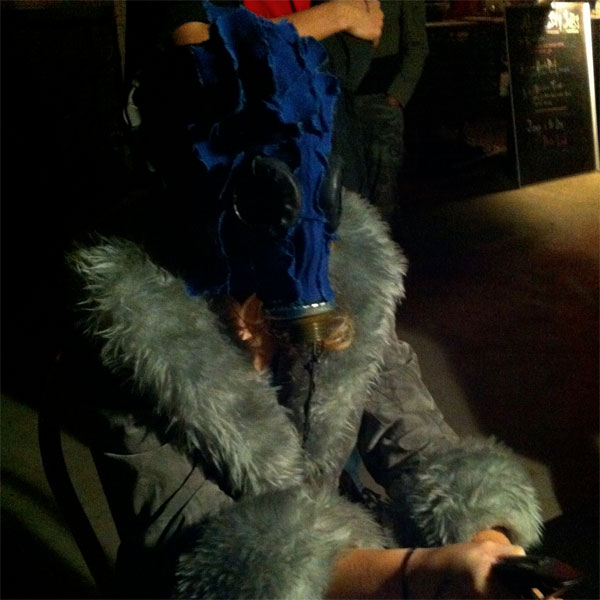
At some point during the Summer of 2011, I had the opportunity to play Robin Arnott’s award-winning gallery game Deep Sea at one of our monthly JUEGOS RANCHEROS meetups, and was completely enthralled. You may not recognize the name, but you might have heard of “that crazy scary gasmask game where you can’t breathe.” That’s Deep Sea. Robin is a sound engineer by profession, but Deep Sea is a really remarkable game experience. It made a lasting impression on me, and I couldn’t imagine Capsule not sounding like Deep Sea, and I didn’t know how I was going to achieve that, on account of not being a sound engineer.
Then, because I am the luckiest dude, with less than a month before Capsule was supposed to debut to the public at the Venus Patrol launch party, Robin ‘Deep Sea‘ Arnott emailed me and wanted to know if I was interested in collaborating on something sometime. I replied in the ecstatic affirmative; I had just the right game.
What I didn’t anticipate, foolishly, was that Robin wouldn’t just contribute his brilliant audio engineering to the project, but that he would also come up with some of the best gameplay ideas for it too. I don’t want to say what they are exactly, but I do want you all to keep in mind that Capsule used to be my game. Then it belonged to both me and Robin.
Now it belongs to you!
So thank you again for supporting Venus Patrol, and I hope that you enjoy this little piece of art that Robin and I created for you,
Adam ‘Atomic’ Saltsman
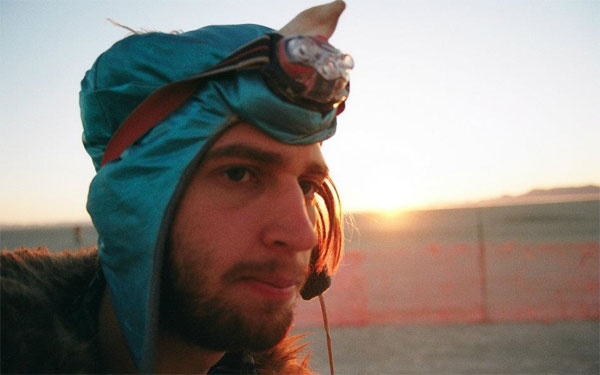
As I write this, my roommates are watching Battlestar Galactica. Yeah, I know, we’re way behind the times. What makes the show so awesome, aside from the spaceships and cylons and stuff, is how having a limited population raises the stakes on each life. Y’know what? That’s a little bit like us!
Last Indiecade, somewhere between the booze and the impromptu Magic the Gathering duels, Brandon tweeted “If somebody bombed our rental Venice beach house right now, there would basically be no more indie games any more.” It takes a lot of bravery to go rogue, so there aren’t that many of us, and ideas spread quickly. That’s why community matters so much. There was a spirit of intellectual excitement in the Venice beach house [seen below! – ed.]. You could directly witness ideas spreading from mind to mind, forming the structure of what will someday be mainstream.
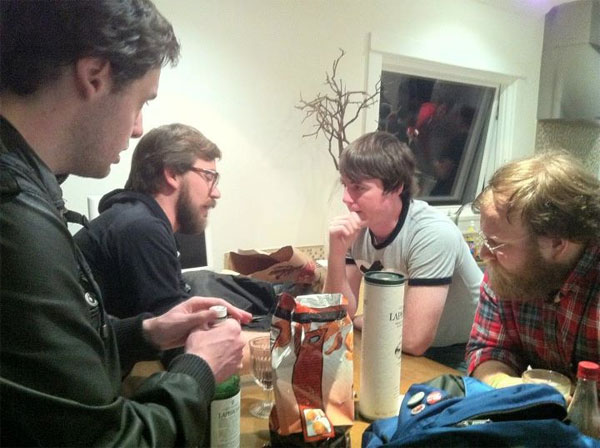
Community leaders like Brandon are important. I moved my sound studio WRAUGHK to Austin two years ago, and both Fantastic Arcade and Juegos Rancheros have introduced me to some of the smartest people I know. It’s how I became friends with @ADAMATOMIC and a host of other artists who continue to inspire and inform me. Community makes us better. Community makes the horrible and idiotic risk of going indie so fracking worth it.
I believe that in twenty years or less, games that explore intimacy and human connection like @chrisbelldesign‘s Way, will be mainstream. Those ideas spread from mind to mind. It’s social, elegant, beautiful, and it happens faster and better because of community.
Robin Arnott
